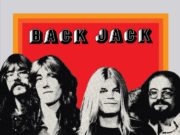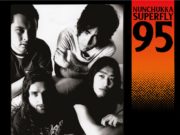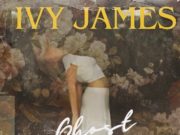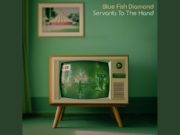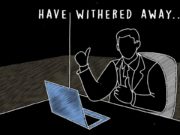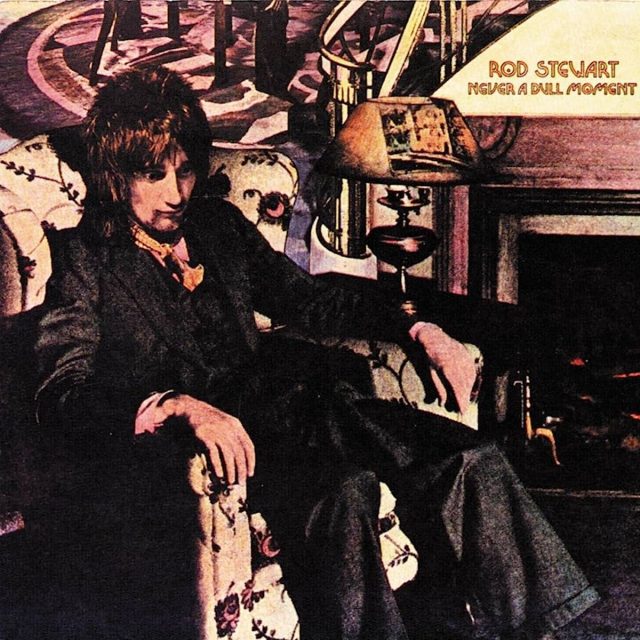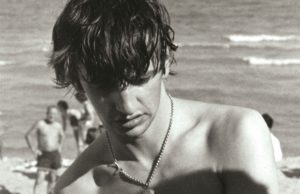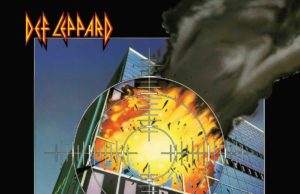 Trying to be a fan of Rod Stewart is a lot like trying to be a fan of cigarettes — you’re about 40 years too late. And just like cigarettes, much of Hot Rod’s success can be directly traced to Ronnie Wood.
Trying to be a fan of Rod Stewart is a lot like trying to be a fan of cigarettes — you’re about 40 years too late. And just like cigarettes, much of Hot Rod’s success can be directly traced to Ronnie Wood.
Something awful happened when Stewart relocated to the United States from the U.K. after 1974’s Smiler in a bid to dodge the savage tax rates on earners like himself. I’m not a fan of Smiler, but certainly everything from 1975’s Atlantic Crossing onwards is crap. It also marks the end of his partnership with Woodsie, who by then was becoming a full-time member of The Rolling Stones — and perhaps the only member of that band whose best material was made outside the Stones.
There are subtle differences between swagger and narcissism, between confidence and ego. One way I could illustrate this is by saying You Wear It Well represents the former and Do Ya Think I’m Sexy represents the latter. But what really sucks is the fact that the 50-year mountain of hot garbage which makes up the bulk of Stewart’s 1973-2023 career almost obliterates the five years of strutting masterpieces found in the 1968-1972 era. The album we’re examining today, Never A Dull Moment, was made right at the end of that era.
Sir Rod has had a fairytale career, essentially going from a Tube busker to being appointed Knight Bachelor by Queen Elizabeth II in 2016 (he already had a CBE). He’s sold more than 100 million records, is in the Rock And Roll Hall of Fame as a member of The Faces, has 15 Grammy nominations to his credit (and one win) and even has seven Juno nominations. That’s as many as Chromeo!
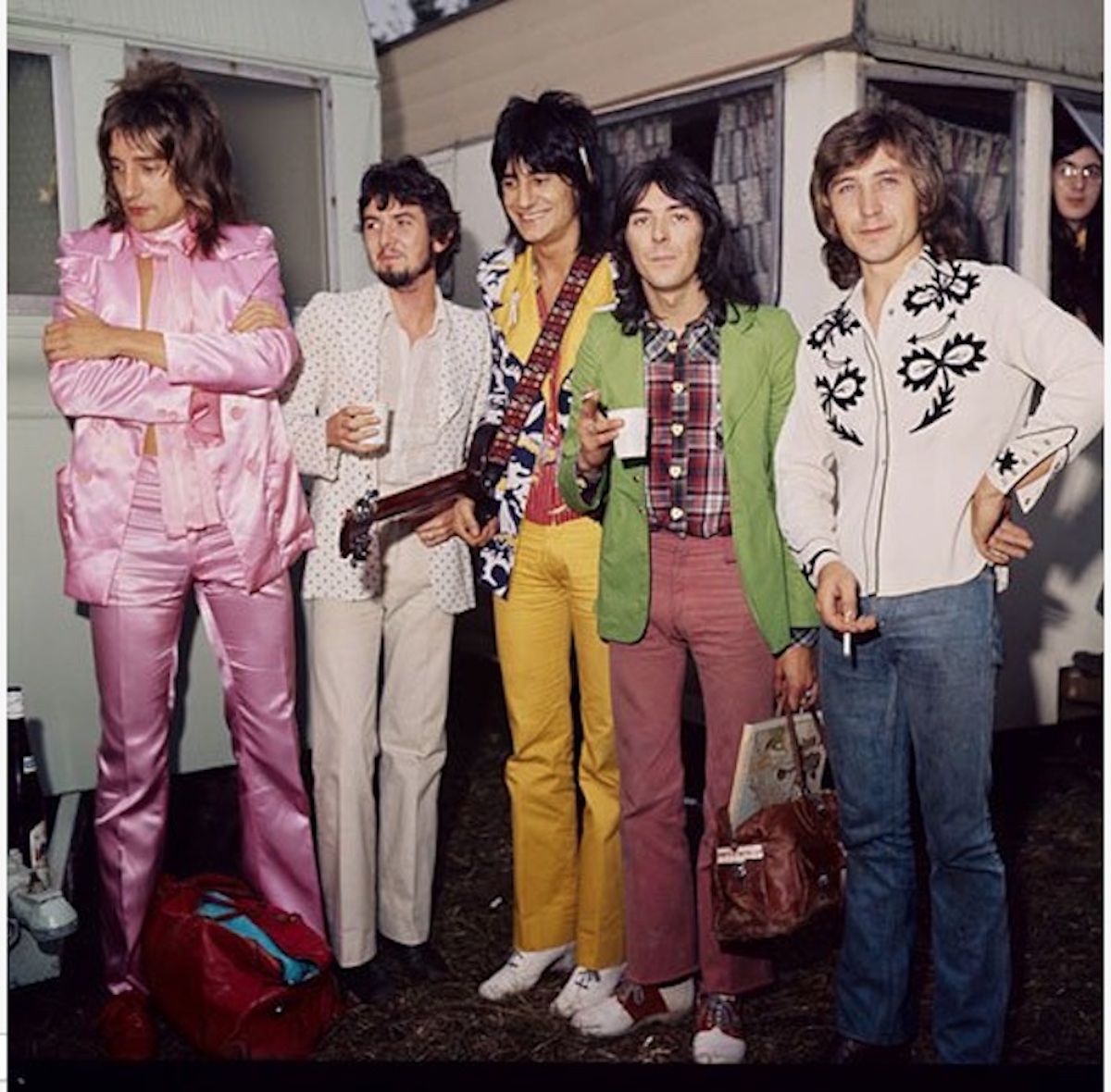
It was while busking that Stewart was discovered by Long John Baldry, who made him a vocalist in his Hoochie Coochie Men, later re-named Steampacket. From there he went on to be lead vocalist in the Jeff Beck Group, where he connected with the band’s bass player Ron Wood. When Steve Marriott quit The Small Faces in 1969, he and Wood were recruited and the band was rechristened Faces. This band — Stewart, Wood, drummer Kenney Jones, bass/vocals/guitarist Ronnie Lane and keyboardist Ian McLagan — were the core group behind Stewart’s best material. This includes not only the four Faces albums but his first four solo records — everything up to Never A Dull Moment, which was kind of a last hurrah, though.
The blurred lines between The Faces and “Rod Stewart’s backing band” occasionally and increasingly created bad feelings between the talented musicians. Lane was the first to go in 1973. They continued until 1975 with bassist Tetsu Yamauchi replacing him before it ran its course. Stewart went on to immediately become one of the world’s biggest solo acts. Lane formed Slim Chance and made albums with people including Pete Townshend. Wood joined the Stones. Jones replaced Keith Moon as The Who’s drummer. McLagan formed The Bump Band and he, Jones and Lane participated in the short-lived reformation of The Small Faces.
It all started really unfurling after Never A Dull Moment. The last Faces album, Ooh La La, while difficult to make, actually benefited from the growing distance between Stewart and his bandmates. He only sings lead on six of the 10 songs. Wood has his only Faces lead vocal on the incredible closing title track — which was lovingly introduced to a new generation of fans as the closing song in Wes Anderson’s 1998 film Rushmore.
I’ll wrap this piece with a playlist which draws from Stewart’s best work — the stuff he did with Wood, including Jeff Beck Group. But now, let’s dive into Stewart’s last great swagger album.
All but two of the original songs on 1972’s Never A Dull Moment were co-written by Wood. One of those two was written by Ron’s brother Art Wood, the other with Martin Quittenton, who played guitar on every Stewart album up to and including Smiler — and with whom Stewart wrote Maggie May in 1971. The album opens with the Stewart/Wood rocker True Blue. It’s performed by The Faces. You only have to hear it to know that. The bassline makes me smile because there’s one note which is slightly off, giving it that loose, drinky vibe — cool, almost wry. This is a song so simple that you almost couldn’t overdo overdubs. You could pile on handclaps, maracas, backing vocals and it would just get better and better. What they do instead — right before the killer outro — is bring in the sound of a revving car speeding away. A reminder: This is a year before Radar Love. It’s a full three years before I’m In Love With My Car. Four years before Detroit Rock City and five before Bat Out Of Hell. The song swoops in like a stork, but carrying the baby Black Crowes in its bundle.
Next up is another Stewart/Wood number — Lost Paraguayos — which retains the spirit of the opener, but now on almost all acoustic instruments. The song has a familiar Stewart plotline — managing prolonged entanglements with young women. It’s catchy and fun without really having a chorus to speak of.
“Got to get me some South America sun
Honey, don’t even ask me if you can come along
Down at the border, you need to be older
And you sure don’t look like my daughter
Your ridiculous age, start a state outrage
And I’ll end up in a Mexican jail
Darling, please don’t cry
You know I wouldn’t tell you no lie (laughs).”
Then it’s time for a Bob Dylan cover — Mama You Been On My Mind. This is quite an inspired version, though not as good as the one done by the late Jeff Buckley.
I also really like the version George Harrison did during the sessions for Let It Be. That said, novelist Nick Hornby (High Fidelity) includes Rod’s version in his autobiography 31 Songs, writing “Stewart’s reverence seems to dignify it, invest it with an epical quality Dylan denies it.”
This is followed by my favourite track on the record, Italian Girls. This one really sounds like Faces, but it’s got Micky Waller on drums instead of Jones, Rod’s former Steampacket bandmate. Waller is the primary drummer on the entire album, actually. Wood appears to handle both guitars and bass on this. It’s as good as Stay With Me. A definitive song for these guys at this time. Again, we go back to the recurring theme of young woman entanglements. The difference with Rod/Ron songs on this subject compared to, let’s say Mötley Crüe, is not just the style of music but the lyrics. Our gents manage to be literate and charmingly chauvinist at the same time.
“I’ve heard Italian girls sometimes hold their religious habits
In front of your eyes
Just to get you tied
Ah, but not my little Bella
’cause I did not have to tell her
That I’d be gone,
with the morning sun
She made me so tired, woo!”
That’s how they wrap up Side 1. Just 17 minutes of perfect ’70s hip-hugger strut. Flip the wax over and we’re treated to an unlikely Jimi Hendrix cover. Angel was first released posthumously on Cry Of Love. Hendrix had intended it for his planned fourth album. The song had been on the back burner for a few years and dates back to sessions for the first album in 1967. Rod and co. do a lovely rendition of what is a very Hendrix-sounding bluesy ballad. The band on this is almost Faces, with the exception of Waller in place of Jones again. I’m not sure the congas work in the chorus, though I do like the bells that tinkle just afterwards. Ronnie’s performance shows you don’t need to do your best Hendrix to cover Hendrix — just be yourself. Bring your own style. His really suits this song.
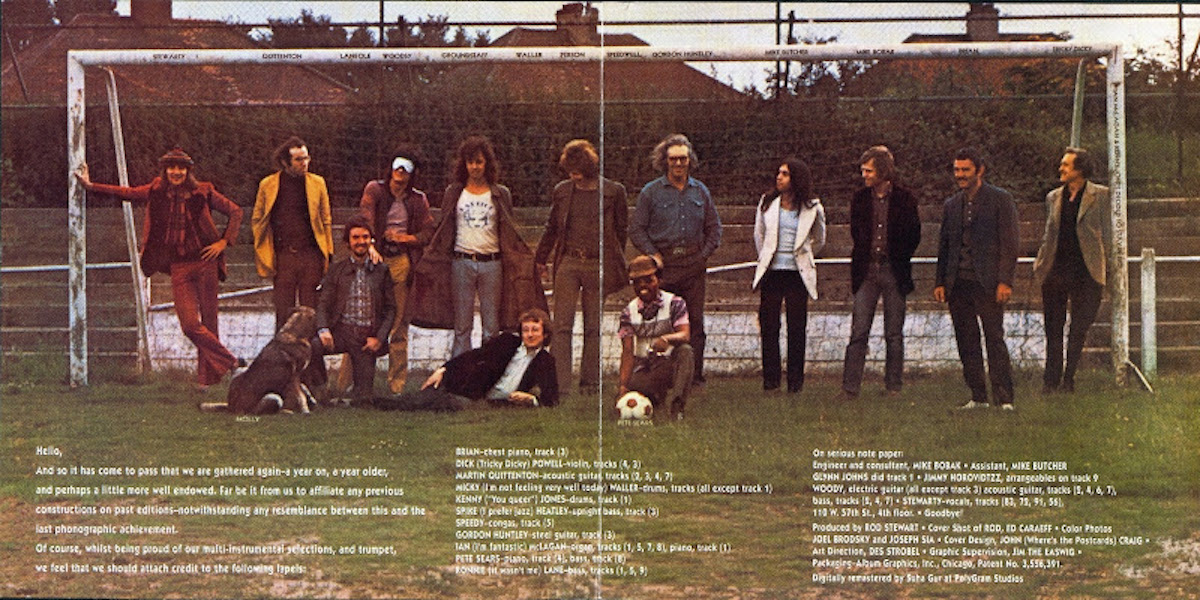
Ron’s brother Art (a musician-turned-graphic designer) penned the little instrumental segue which follows. Interludings is a pretty acoustic number which flows almost seamlessly into the record’s smash hit You Wear It Well. Unlike the congas in Angel, the violin by Dick Powell sounds great throughout. It basically takes on the role of lead guitar, except a bit deeper in the mix than an electric guitar would be. The crests and dips of the fiddle in the mix aren’t done by a producer, they’re done on-the-fly by a player who knows how to play and how to position themself. It really helps keep this swinging, jangly pop tune illuminated. A bona fide classic.
I’m more on the fence about the next one, a cover of I’d Rather Go Blind, which I consider one of two signature songs of Etta James (the other being At Last). To me, this is just a bit of schlock. It foreshadows Rod’s “great American songbook” crap of the early 2000s. There’s nothing wrong with this — it’s obviously a bloody brilliant blues song — and the arrangement is simple, great and string-free. It’s just, I dunno, a bit twee.
I also don’t love the final track, which is another cover. However, I’m in the minority here. The cover of Sam Cooke’s Twistin’ The Night Away was released as a single, albeit a mediocre one, sales-wise. It failed to crack the Top 40. Best thing I can say about it is it’s nice and loose and a little sleazy. The bass — handled by Wood, who also plays guitar — might be a little too loose. The turnarounds to start the second round of verses are downright sloppy. Still, it’s an essential part of your collection.
4/5
• • •
Area Resident is an Ottawa-based journalist, recording artist, music collector and re-seller. Hear (and buy) his music on Bandcamp, email him HERE, follow him on Instagram and check him out on Discogs.


